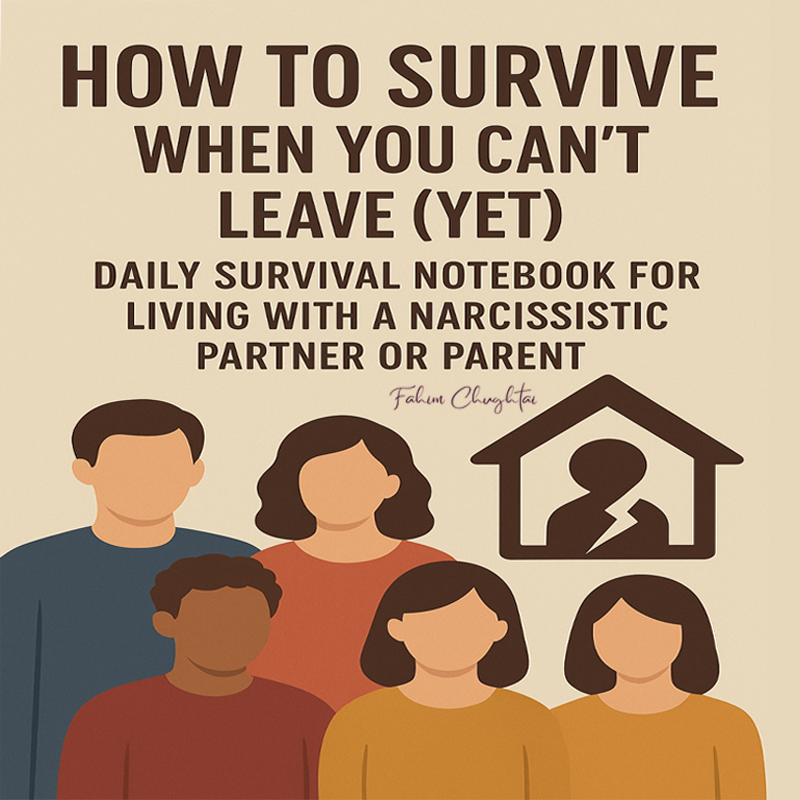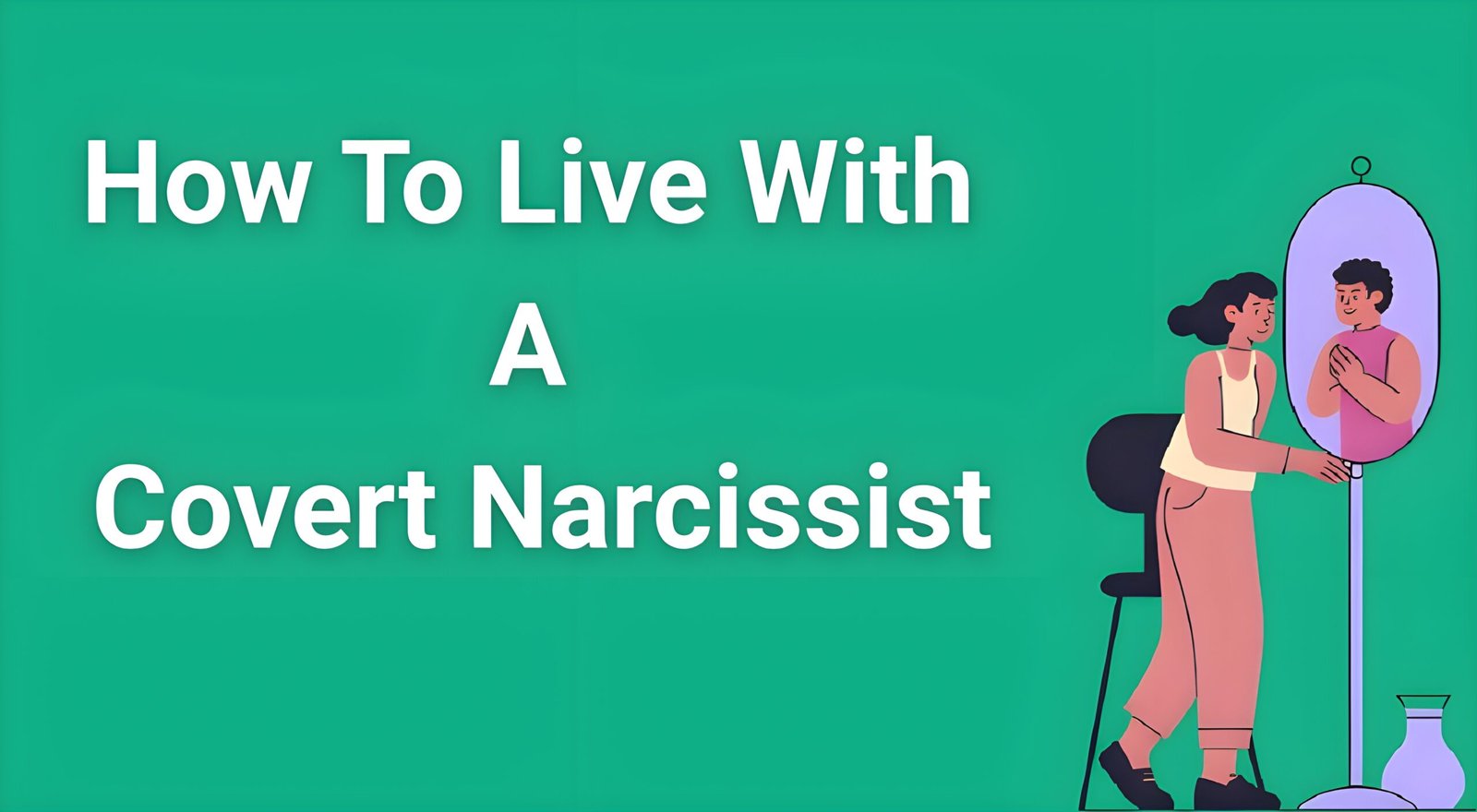That nagging feeling in your gut won’t go away. Something’s wrong in your marriage, but you can’t quite put your finger on it. Friends see your wife as charming, sensitive, and caring, yet behind closed doors, you feel like you’re walking on eggshells. If you’ve been questioning whether “my wife is a covert narcissist,” you’re not alone—and you’re not going crazy.
- What Makes Covert Narcissism So Dangerous
- The 15 Hidden Signs Your Wife Is A Covert Narcissist
- The Psychological Impact on You
- Why Covert Narcissism is Often Missed
- Breaking Free From the Confusion
- What Professional Analysis Can Reveal
- Building Your Support System
- Protecting Your Mental Health
- When You Can’t Leave Yet
- The Path Forward
- Moving From Confusion to Clarity
- Frequently Asked Questions
Unlike overt narcissists who display obvious grandiosity and attention-seeking behavior, covert narcissists operate in the shadows. They manipulate through subtle tactics that leave you confused, exhausted, and constantly questioning your own reality. Understanding these hidden manipulation tactics is the first step toward reclaiming your sanity and protecting your mental health.
What Makes Covert Narcissism So Dangerous
Covert narcissism represents one of the most psychologically damaging forms of emotional abuse because it’s designed to be invisible. Where overt narcissists might openly belittle or dominate, a covert narcissist wife uses passive-aggressive manipulation, victim mentality, and emotional withdrawal to maintain control.
The danger lies in the subtlety. You know something feels wrong, but the manipulation is so covert that you begin to doubt your own perceptions. This creates a psychological phenomenon called cognitive dissonance—the mental discomfort of holding contradictory beliefs about the same person.
Am I Dealing With a Covert Narcissist — or Just Toxic Behavior?
Research from the Journal of Personality Disorders shows that covert narcissism in women often manifests through emotional manipulation rather than the physical aggression more commonly seen in male narcissists. This makes the abuse harder to identify and even harder to explain to others.
The 15 Hidden Signs Your Wife Is A Covert Narcissist
Understanding the specific traits and behaviors can help you recognize the pattern you’ve been experiencing. Here are the most telling signs:
1. Victim Mentality With a Twist of Superiority
A covert narcissist wife constantly plays the victim while simultaneously believing she’s superior to others. She presents herself as misunderstood, unappreciated, or wronged by the world, but this victimhood serves a specific purpose: control and attention.
Unlike genuine victims who seek solutions, she seems to enjoy the victim role. When you try to help or offer solutions, she rejects them. The victim mentality allows her to avoid accountability while garnering sympathy and making others feel guilty for not doing more for her.
You might notice she always has a story about how someone mistreated her at work, how friends don’t appreciate her efforts, or how family members don’t understand her. Yet she rarely takes any responsibility for her role in these conflicts.
2. Passive-Aggressive Punishment Systems
When displeased, instead of direct communication, she employs sophisticated passive-aggressive tactics. These might include:
- The silent treatment that lasts for days
- “Forgetting” important events or commitments
- Completing tasks incompletely or poorly when asked
- Making subtle digs disguised as jokes
- Withdrawing affection or intimacy as punishment
This creates an environment where you’re constantly trying to figure out what you did wrong and how to get back in her good graces. The uncertainty keeps you off-balance and focused on managing her emotions rather than addressing legitimate relationship issues.
3. Empathy That’s Performative, Not Genuine
She appears empathetic and caring to others, which makes your experiences even more confusing. However, her empathy is selective and strategic. She shows concern when it benefits her image or when she needs something, but lacks genuine emotional connection to your experiences.
When you’re going through difficulties, her response might feel hollow or quickly redirected back to her own experiences. She might say the right words, but you don’t feel truly heard or understood. This performative empathy maintains her public image while leaving you emotionally starved in the relationship.
4. Subtle Competition and One-Upmanship
Everything becomes a competition, though she’d never admit it. If you share good news, she quickly tops it with her own story. If you’re struggling with something, she’s struggled with something worse. If you accomplish something, she either minimizes it or finds a way to make it about her.
This subtle competition extends to other relationships too. She might feel threatened by your friendships, your relationship with family members, or your success at work. Rather than celebrating your achievements, she finds ways to diminish them or steal focus.
5. Gaslighting Through Gentle Confusion
Gaslighting from a covert narcissist doesn’t look like angry denial. Instead, it’s gentle confusion that makes you question your memory and perceptions. She might say things like:
- “I don’t remember it that way”
- “You’re being too sensitive”
- “I think you’re misunderstanding”
- “That doesn’t sound like something I would do”
This gentle form of gaslighting is particularly insidious because it seems reasonable and caring on the surface. Over time, you begin to doubt your own memory and perceptions, making you more dependent on her version of reality.
6. Emotional Unavailability Disguised as Depth
She presents herself as emotionally deep and sensitive, but when you try to connect on a genuine level, she’s unavailable. Conversations about feelings get redirected, cut short, or turned into intellectual discussions rather than emotional connections.
She might share emotions, but they’re often about her own experiences or designed to evoke a specific response from you. True emotional intimacy—the vulnerable sharing of inner experiences—remains elusive. You feel like you’re always on the outside looking in.
7. Control Through Helplessness
She maintains control by appearing helpless or overwhelmed, particularly in areas where she doesn’t want to take responsibility. This learned helplessness forces you to take over tasks, make decisions, or solve problems that she’s perfectly capable of handling herself.
When you become frustrated with always having to step in, she makes you feel guilty for not being more supportive. This creates a dynamic where you’re constantly rescuing her while she avoids accountability.
8. Social Manipulation and Image Management
Your covert narcissist wife is likely very concerned with how others perceive her. She carefully manages her public image while allowing her true nature to show only behind closed doors. This might include:
- Being charming and helpful in social situations
- Volunteering for causes or helping others publicly
- Presenting your relationship as perfect to others
- Sharing your private struggles with others to gain sympathy
This image management serves multiple purposes: it provides narcissistic supply from others’ admiration and makes it difficult for you to seek help or support, since others see her as wonderful.
9. Boundary Violations Through “Caring”
She violates your boundaries while framing it as care or concern. This might include reading your private messages, showing up uninvited, giving unsolicited advice, or making decisions that affect you without consultation.
When you express discomfort with these violations, she reframes them as evidence of how much she cares about you. This makes it difficult to maintain healthy boundaries without seeming ungrateful or uncaring.
10. Selective Memory and Convenient Forgetfulness
She has remarkable memory for any perceived slights against her but conveniently forgets her own hurtful behavior or promises she’s made. This selective memory serves to maintain her victim narrative while avoiding accountability.
You might find yourself frequently reminding her of commitments she made or incidents where she hurt you, only to be told that she doesn’t remember things that way or that you’re bringing up the past.
11. Martyrdom and Self-Sacrifice Theater
She presents herself as constantly sacrificing for others, particularly for you and the family. However, these sacrifices often come with strings attached and are used to generate guilt and obligation rather than being genuine gifts.
When she does something for you, it becomes part of a mental ledger that she’ll reference later. Her sacrifices are performed in a way that ensures others notice and appreciate her selflessness, and she becomes resentful when the recognition doesn’t meet her expectations.
12. Emotional Intensity That Feels Manufactured
Her emotional responses often feel disproportionate or calculated. She might have intense reactions to minor issues while remaining strangely unmoved by significant events. This emotional unpredictability keeps you walking on eggshells.
The intensity serves to manipulate situations in her favor. By becoming upset or emotional, she shifts focus away from accountability and onto comforting her emotions. You learn to avoid topics or behaviors that trigger these intense reactions.
13. Triangulation and Relationship Manipulation
She brings third parties into your relationship conflicts, often by sharing private information about you or your marriage with others. This might include family members, friends, or even your children.
By triangulating relationships, she gains allies and puts you in the position of defending yourself against a group rather than addressing issues directly between the two of you. This also provides her with additional sources of validation and support for her perspective.
14. Hypersensitivity to Criticism Disguised as Deep Feeling
Any feedback or constructive criticism is met with an intense emotional response that makes you regret bringing up the issue. She might become tearful, withdrawn, or angry, effectively training you to avoid addressing problems in the relationship.
This hypersensitivity is often framed as being a “deep” or “sensitive” person, making you feel cruel for having normal relationship concerns. Over time, you learn to suppress legitimate issues rather than deal with her emotional volatility.
15. Love Bombing Cycles That Keep You Hooked
Periodically, she returns to the charming, attentive person you fell in love with. These love bombing cycles might coincide with times when you’re pulling away or when she senses she’s losing control. The intermittent reinforcement of good treatment keeps you hoping that “this time” things will be different.
These cycles create a trauma bond that makes it difficult to leave the relationship even when you recognize the problematic patterns. The good times feel so genuine and loving that you question whether the difficult times are really as bad as they seem.
The Psychological Impact on You
Living with a covert narcissist wife creates specific psychological effects that you might be experiencing:
Reality Distortion: Constant gaslighting and manipulation make you question your own perceptions and memories. You might find yourself constantly second-guessing your reactions or feeling confused about what’s really happening.
Emotional Exhaustion: The energy required to navigate her emotional landscape, anticipate her needs, and avoid triggering negative responses leaves you chronically drained. You might feel like you’re always “on” and can never truly relax.
Isolation: The difficulty in explaining the subtle manipulation to others, combined with her public image management, can leave you feeling isolated and misunderstood. Friends and family might not understand why you’re struggling in what appears to be a normal marriage.
Codependent Patterns: You might find yourself becoming increasingly focused on managing her emotions and needs at the expense of your own. This codependent dynamic reinforces the unhealthy relationship patterns.
Identity Confusion: After years of having your perceptions questioned and your needs minimized, you might struggle to remember who you are outside of the relationship. Your sense of self becomes intertwined with keeping her satisfied.
Why Covert Narcissism is Often Missed
Several factors make covert narcissism in wives particularly difficult to identify:
Gender Stereotypes: Society often expects women to be nurturing and selfless, making covert narcissistic behaviors seem like “normal” feminine traits taken to an extreme rather than manipulative tactics.
Subtlety of Tactics: The manipulation is sophisticated and subtle, designed to be invisible to outside observers and sometimes even to the victim themselves.
Public vs. Private Behavior: The stark difference between her public persona and private behavior makes it difficult to get validation or support from others who only see the public version.
Cultural Narratives: Stories about “difficult” or “high-maintenance” wives are common in our culture, making it easy to dismiss your experiences as normal relationship challenges rather than recognizing them as emotional abuse.
Professional Misunderstanding: Even some mental health professionals miss covert narcissism, particularly in women, because it doesn’t fit the stereotypical presentation they’re trained to recognize.
Breaking Free From the Confusion
If you’ve recognized your wife in these descriptions, you’re likely experiencing a mix of relief and fear. Relief that your experiences have a name and explanation, and fear about what this means for your marriage and future.
Understanding that your wife’s behavior follows predictable patterns of covert narcissism is the first step toward protecting your mental health and making informed decisions about your relationship. Many men in similar situations have found that getting professional analysis of their specific situation provides the clarity and validation they need to move forward.
When you’re dealing with manipulation tactics that are designed to make you doubt your own reality, having an expert perspective can be invaluable. A comprehensive analysis of your relationship dynamics can help you understand exactly what you’re dealing with and provide specific strategies for your unique situation.
The road to recovery often begins with simply understanding that what you’re experiencing has a name and that you’re not losing your mind. Professional guidance can help you develop the tools and strategies you need to protect yourself and make decisions about your future from a place of clarity rather than confusion.
What Professional Analysis Can Reveal
Getting expert analysis of your situation can provide several crucial insights:
Pattern Recognition: Professionals trained in narcissistic abuse can identify patterns in your wife’s behavior that you might miss or dismiss. This validation can be incredibly powerful in helping you trust your own perceptions again.
Manipulation Tactics: Understanding the specific manipulation tactics being used against you helps you develop immunity to them. When you can name what’s happening, it loses much of its power over you.
Safety Planning: Depending on the severity of the situation, professional guidance can help you develop safety plans for protecting yourself emotionally and potentially physically.
Recovery Strategies: Different types of narcissistic abuse require different recovery approaches. Professional analysis can provide personalized strategies for your specific situation.
Decision-Making Support: Whether you’re considering staying and setting boundaries or planning to leave, professional guidance can help you make informed decisions based on your specific circumstances rather than fear or guilt.
Building Your Support System
Recovery from covert narcissistic abuse requires support, but building that support system can be challenging when the abuse is invisible to others. Here are strategies that many survivors have found helpful:
Documentation: Keep a private journal of incidents, conversations, and your emotional responses. This helps combat gaslighting and provides validation of your experiences.
Selective Disclosure: Carefully choose who you share your experiences with. Look for people who can listen without trying to fix or minimize your situation.
Professional Support: Consider working with a therapist who specializes in narcissistic abuse. They can provide validation, coping strategies, and guidance specific to your situation.
Trauma Bond Recovery: Understanding trauma bonds—the psychological attachment that develops through cycles of abuse and intermittent reinforcement—can be crucial for breaking free mentally and emotionally.
For many men dealing with covert narcissistic wives, structured recovery programs specifically designed for trauma bond recovery have been life-changing. These programs help break the psychological attachment that keeps you trapped in unhealthy patterns, even when you intellectually understand the problems in your relationship.
Protecting Your Mental Health
While you’re processing this information and deciding on next steps, protecting your mental health is crucial:
Reality Anchoring: Regularly check in with trusted friends or family members to maintain perspective on normal relationship dynamics.
Emotional Regulation: Learn techniques for managing the emotional volatility that comes with this type of relationship. This might include breathing exercises, meditation, or physical exercise.
Boundary Setting: Start with small, manageable boundaries and gradually work up to larger ones. This helps build your confidence and reduces the likelihood of explosive reactions.
Self-Care: Prioritize activities and relationships that nurture your sense of self outside of your marriage. This helps counter the identity erosion that occurs in narcissistic relationships.
Information Gathering: Educate yourself about covert narcissism and emotional abuse. Knowledge is power, and understanding the dynamics can help you feel less crazy and more in control.
Still Living With Them? You’re Not Helpless.

When You Can’t Leave Yet
Many men find themselves in situations where leaving immediately isn’t practical or possible due to financial constraints, children, or other circumstances. If you’re in a situation where you can’t leave yet, there are strategies for surviving and protecting yourself mentally:
Emotional Detachment: Learning to detach emotionally from her reactions and manipulations can provide significant relief. This doesn’t mean becoming cold or uncaring, but rather not taking responsibility for her emotional state.
Gray Rock Method: Becoming as uninteresting as possible during conflicts can reduce the narcissistic supply she gets from your emotional reactions, potentially decreasing the frequency of manipulative episodes.
Separate Finances: If possible, begin building financial independence quietly. Even small steps toward financial autonomy can provide hope and practical options for the future.
Support Network: Build relationships outside the marriage that provide emotional support and reality checking. This is crucial for maintaining your sanity in a reality-distorting environment.
You’ve Seen the Patterns. Now Break the Bond.
Exit Planning: Even if you can’t leave now, having a plan for the future can provide hope and direction. This might include career development, financial planning, or legal consultation.
For those who find themselves needing to survive in these situations temporarily, comprehensive guides on surviving when you can’t leave yet can provide specific, practical strategies for protecting your mental health and preparing for eventual freedom.
The Path Forward
Recognizing that your wife is a covert narcissist is both an ending and a beginning. It’s the end of confusion and self-doubt, and the beginning of clarity and intentional decision-making about your future.
The path forward isn’t always clear or easy, but it starts with trusting your perceptions and taking steps to protect your mental health. Whether that leads to working on the relationship with professional help, setting firmer boundaries, or eventually leaving depends on your specific situation and her willingness to acknowledge problems and seek help.
What’s most important is that you’re no longer questioning your sanity. Your experiences are valid, your feelings are justified, and you deserve to be in a relationship where you feel heard, respected, and valued.
Moving From Confusion to Clarity
The confusion you’ve been experiencing isn’t a character flaw or a sign of weakness—it’s a natural response to sophisticated psychological manipulation. Covert narcissists are skilled at creating confusion because confusion keeps you focused on trying to understand rather than taking action to protect yourself.
Recovery begins with clarity, and clarity often requires outside perspective from someone trained to recognize these patterns. Many men have found that getting professional analysis of their specific situation provides the validation and guidance they need to stop questioning themselves and start making decisions from a place of strength rather than confusion.
Whether you’re looking for validation of what you’re experiencing, specific strategies for your situation, or support in breaking free from trauma bonds that keep you attached to someone who hurts you, remember that help is available and you don’t have to navigate this alone.
Your awareness that something is wrong is the first step toward reclaiming your life. Trust that awareness, seek the support you need, and know that clarity and peace are possible on the other side of this difficult realization.
Frequently Asked Questions
Q: How can I tell if my wife is a covert narcissist or just going through a difficult time?
A: Covert narcissism involves consistent patterns of behavior over time, not temporary stress responses. Look for persistent lack of empathy, victim mentality, manipulation tactics, and an inability to take responsibility for her actions. Difficult times typically bring out the best in people eventually, while narcissistic patterns remain constant regardless of circumstances.
Q: Can a covert narcissist change with therapy?
A: While personality disorders are difficult to treat, change is possible if the person genuinely acknowledges the problem and commits to long-term therapy. However, covert narcissists rarely believe they have a problem and often use therapy as another way to manipulate or gain validation rather than genuine self-reflection.
Q: Should I tell my wife I think she’s a covert narcissist?
A: Generally, no. Confronting a narcissist with the diagnosis often leads to increased manipulation, gaslighting, or rage. They’re likely to turn it around and accuse you of being the narcissist. Focus on your own healing and getting professional guidance rather than trying to make her aware of her condition.
Q: How do I explain this to friends and family who think my wife is wonderful?
A: This is one of the most challenging aspects of covert narcissistic abuse. Start with one trusted person who knows you well. Share specific examples rather than labels, and don’t expect immediate understanding. Consider working with a therapist who can help you process your experiences and develop strategies for building support.
Q: Will my children be affected by their mother’s covert narcissism?
A: Children of narcissistic parents often experience emotional neglect, manipulation, and confusion about normal relationship dynamics. However, having one healthy parent who can provide emotional stability and validation can significantly protect children. Consider working with a family therapist who understands narcissistic family dynamics.
Q: How long does recovery from covert narcissistic abuse take?
A: Recovery is individual and depends on factors like the length of the relationship, the severity of abuse, your support system, and whether you’re still in the relationship. Many people begin feeling significantly better within a few months of gaining clarity and starting recovery work, but full healing can take longer. The key is starting the process and being patient with yourself.






